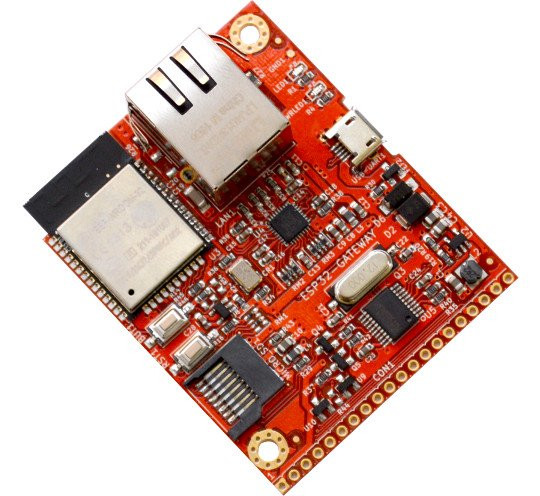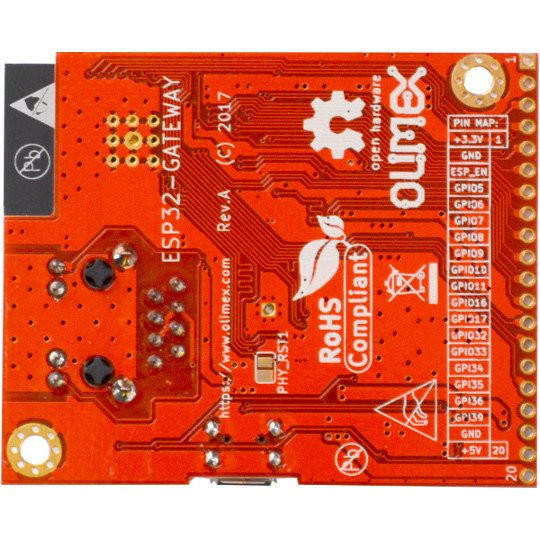Olimex has just launched ESP32-GATEWAY board, as cost-down version of their ESP32-EVB board, still with Ethernet, WiFi, and Bleutooth LE, but without any relays, CAN bus, nor IR control, less I/Os, and a smaller footprint.
 Olimex ESP32-GATEWAY specifications:
Olimex ESP32-GATEWAY specifications:
- Wireless Module – ESP32-WROOM32 module with 802.11 b/g/n WiFi and Bluetooth LE
- Wired Connectivity – 10/100M Ethernet with RJ45 jack (via LAN8710A)
- External Storage – micro SD slot
- Expansion – 20-pin GPIO connector
- USB – 1x micro USB port for debugging (CH340T) and power
- Misc – Reset and user buttons
- Power Supply – 5V via micro USB port
- Dimensions – 62 x 50 mm
Another change is the lack of a LiPo charger to run the board from batteries. Just like most Olimex boards, ESP32-GATEWAY is open source hardware with KiCAD design files available on Github. The software directory is still empty, but Ethernet demo code using ESP32-IDF has been pushed for for ESP32-EVB board, and is likely to run with minor or even no modifications on ESP32-GATEWAY board.
 You’ll save 4 Euros over ESP32-EVB board, as Olimex is selling ESP32-GATEWAY board for 22 Euros.
You’ll save 4 Euros over ESP32-EVB board, as Olimex is selling ESP32-GATEWAY board for 22 Euros.

Jean-Luc started CNX Software in 2010 as a part-time endeavor, before quitting his job as a software engineering manager, and starting to write daily news, and reviews full time later in 2011.
Support CNX Software! Donate via cryptocurrencies, become a Patron on Patreon, or purchase goods on Amazon or Aliexpress




